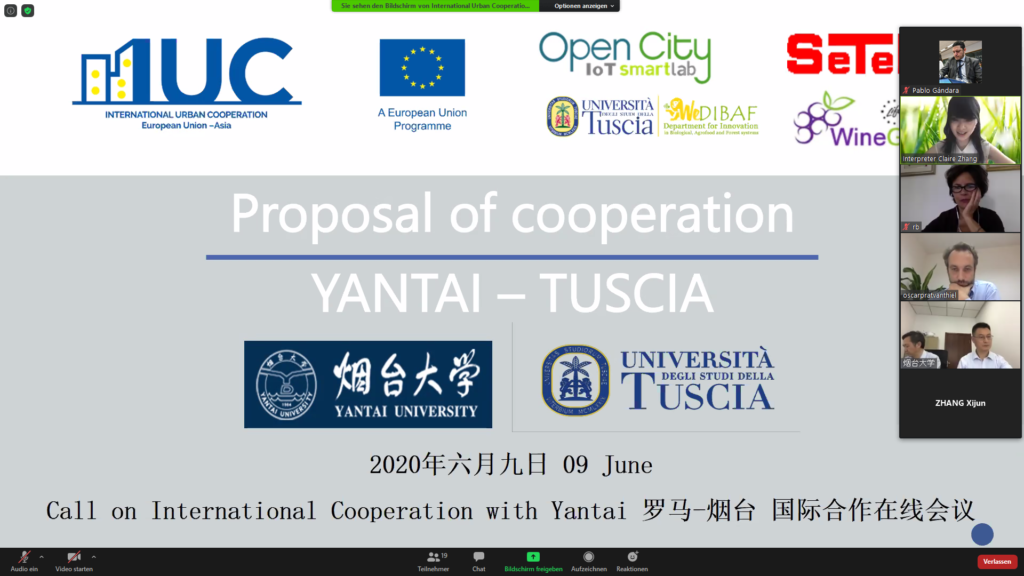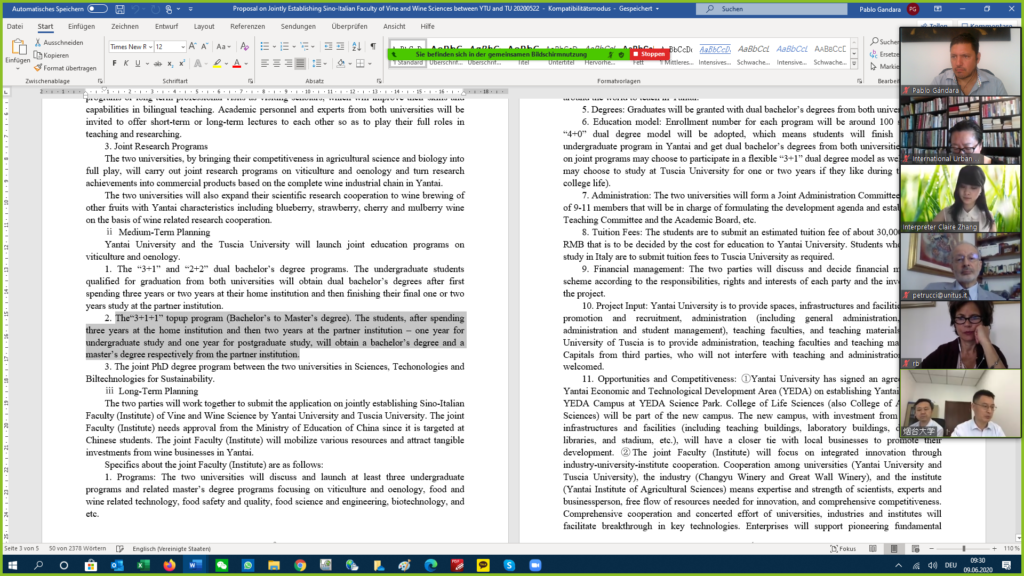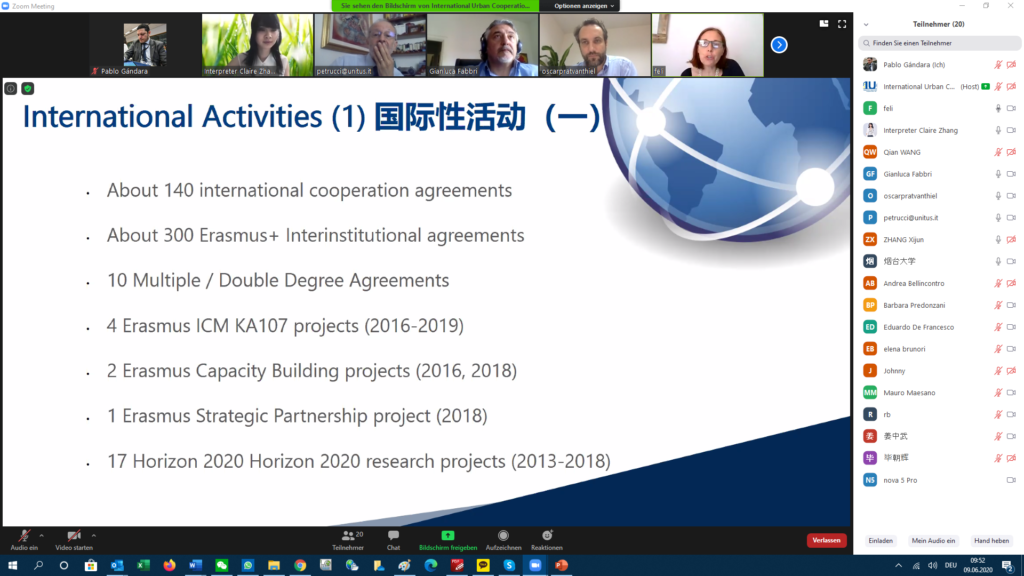Twenty representatives from the University of Tuscia (Rome), the University of Yantai (Shandong Province), and the IUC Asia team met today to discuss cooperation in different areas of research and academic education related to urban agriculture. Yantai has proposed to jointly establish a Sino-Italian Faculty of Urban Agriculture including an Institute of Wine Sciences. Activities proposed include double-degrees for master students, joint research, and staff exchange.
Professor Felicetta Ripa introduced the international activities of Tuscia, including cooperation agreements in China with the Sichuan Provincial Institute of Natural Resource Science, the South China Botanical Garden, the Chinese Academy of Sciences and the Anhui Agricultural University. She proposed to support exchange with Yantai within existing programmes including the International Credit Mobility KA107 (mobility of University students, professors, researchers, administrative staff), capacity building projects between EU and Extra EU Universities, the Strategic Partnership programme and the upcoming Horizon Europe 2021-2017 programme.
Professor Rita Biassi from the Department for Innovation in Biological, Agri-food and Forest Systems (DIBAF) at the University of Tuscia proposed to cooperate in urban/peri-urban viticulture and integrated landscape management as a way to maintain the competitiveness of the wine sector in light of ongoing environmental emergencies, e.g. land degradation. Peri-urban areas surrounding large cities like Rome and Yantai are crucial for sustainable regional development as they include transition zones. Professor Biassi stated that climate change is a challenge that makes the development of new grapevine geography necessary. Peri-urban areas in the Lazio region need to develop adaptation and mitigation strategies in a contest of decreasing surfaces and increasing wine consumption. Cooperation with China would support the sustainable development goals of the UN, specifically goal 2 (zero hunger), 11 (sustainable cities and communities), 13 (climate change), and 15 (life on land).
Yantai’s Vice Dean Zhongwu JIANG from the Agriculture School and expert in grape cultivation underlined the access to unique local wine industry-related resources including well-equipped facilities and outstanding teaching faculties from the College of Life Sciences, the Yantai Agricultural Research Institute as well as the Changyu Winery from Yantai. This would allow students and researchers to connect the program activities with the industry needs and provide curriculums focusing on not only theoretical study but also on hands-on experiences. He also mentioned that Yantai University YEDA Campus at YEDA Science Park could be the potential site for the jointly established faculty. The Science Park is a high-level international park for education and scientific innovation, and partly planned for international cooperation projects. The Science Park is located about 15 minutes drive from Changyu International Wine City and Chateau Changyu-Castel and 30 minutes to COFCO Great Wall Wine (Yantai), making it an ideal place for the institute to engage in teaching, research, business integration and scientific & research exchanges.
Partners from both sides agreed on the following steps:
- Include Yantai into the existing EU Wine Grover project activities for Precision Agriculture, funded by the EU’s LIFE programme and involving Tuscia University. The project demonstrates how the application of advanced techniques in precision farming for viticulture, combined with the use of different drones and sensors, can have an important effect in terms of reducing greenhouse gases and soil protection. Partners agreed to involve the companies SETEL and Wellness TechGroup (both from Rome) and Changyu Winery (Yantai)
- Start the exchange of academic staff as soon as possible (TBD due to Covid19 crisis), and start with tailored virtual exchanges among researchers
- Draft an MoU / general agreement including a detailed implementation plan with specific activities on research and collaboration with companies (specifically wine growers)
- Establish permanent communication via e-mail and WeChat
Agenda and Participants List
Yantai-Rome Online Meeting_09 June_Agenda
Impressions
















